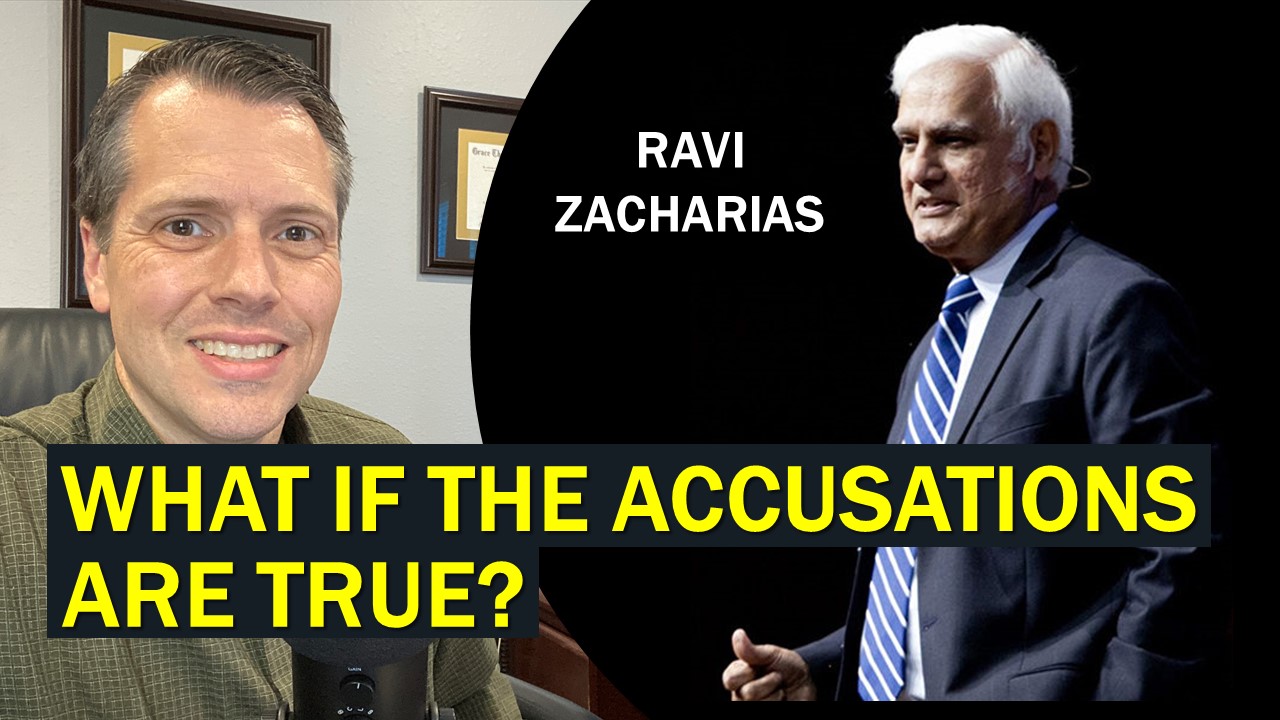And it happens again—another high-profile Christian celebrity renounces his faith. This time the announcement came from Jon Steingard, the lead singer and songwriter for the Christian rock band Hawk Nelson. On May 21, 2020, he posted a lengthy statement on Instagram announcing that he no longer believed in God.
He’s definitely not the first. People turn from faith in God all the time, but when the celebrities do it, the world reels in shock. How can it be? How can someone who writes and performs Christian music suddenly renounce his faith?
I’ll tell you how it can be, and I’m not going to ridicule Jon or others like him. Personally, I would rather see people go public with their doubts rather than continue to put up a false front or, as in Jon’s case, make a profit off Christianity while inwardly rejecting it.
While you can say what you want about Jon, I am going to point the finger of blame in the direction I think it should point—the church. No, the church is not directly responsible for Jon’s decisions—he made those himself. But as I read his statement, I couldn’t help but wonder how many others have also followed the path upon which Jon now walks, all because the church has dismally failed in its task.
I won’t include Jon’s whole statement here—you can easily find it on the Internet. However, it is important to note that both Jon and his wife Jess were raised in pastors’ homes. Jon grew up in church and states the importance that Christianity played in his upbringing. When talking about church, he says:
“It wasn’t a part of our life. It was our life.”
He refers to his process of losing his faith as being like unraveling a sweater.
“It didn’t happen overnight or all of a sudden. It’s been more like pulling on the threads of a sweater, and one day discovering that there was no more sweater left.”
So, how did his sweater unravel? How can you lose your faith? I think the answer may be in that many times “faith” is based on nothing. My definition of “faith” is “trust in something that has been proved to be reliable.” However, for Jon and many others, they just accepted their parents’ beliefs because it was what they were supposed to do.
Listen to what he says:
“When you grow up in a community that holds a shared belief, and that shared belief is so incredibly central to everything, you simply adopt it.”
But then comes the time when you start thinking for yourself, and you wonder, “Is it all really true? Is there really something to all this?”
Because of that thinking, Jon started considering some deeper issues. Listen to what he writes:
“If God is all loving, and all powerful, why is there evil in the world? Can he not do anything about it? Does he not choose to? Is the evil in the world a result of his desire to give us free will? Ok then, what about famine and disease and floods and all the suffering that isn’t caused by humans and our free will? If God is loving, why does he send people to hell? My whole life people have always said, ‘You have to go back to what the Bible says.’ I found, however, that consulting and discussing the Bible didn’t answer my questions, it only amplified them.”
He then goes on to talk about how God sanctioned killing in the Old Testament, allowed Job to suffer, and commanded Abraham to kill his son, then telling him it was just a joke.
And then he says this about Jesus:
“Why does Jesus have to die for our sins (more killing again)? If God can do anything, can’t he forgive without someone dying? I mean, my parents taught me to forgive people—nobody dies in that scenario.”
He talks about other issues he has with the Bible, but I think you get the point. He no longer trusts the Bible, so he made the decision to step away from belief in God.
Like I said before, my intention is not to ridicule or demean Jon. My goal is to help us as the church understand what we have done wrong that is prompting so many to reject their beliefs.
In Jon’s testimony, as well as that of others, I see four mistakes that we have made that need to be rectified if we’re going to stop losing people to doubts.
1. We teach “believe” rather than “this is why you should believe”
There may have been a time where we could just tell someone what to believe and they would stick with it for the rest of their lives. Not anymore. Our young people go to schools and hear about how science disproves the Bible and that Christians are stupid, and that the Bible is nothing more than manmade fairy tales.
Who are they supposed believe? The grandma who made them sit in uncomfortable chairs in the church basement while she used flannelgraph to tell them about a guy who was eaten by a fish, then barfed up and went on preaching—or the tenured professor with several doctoral degrees, spectacles, and a bowtie?
When kids start thinking for themselves, they say, “Wait a minute—why should I believe an archaic book that condones genocide and chauvinism when smart people tell me it’s nothing but myths?”
In the past couple decades, we’ve seen an explosion of interest in apologetics, and I think that’s great. We have to explain why we believe what we believe. If people don’t know why they believe what they believe, they can be led to believe anything.
2. We engage in shallow worship
Jon talked about people crying out “Holy Spirit, come fill this place” and a youth activity where they encouraged teens to sign a card stating that they will “date Jesus” for a year. That seemed strange to him, and it does to me, too. That doesn’t sound at all to me like the serious discipleship that you find in the New Testament.
Early Christianity was not about a euphoric feeling of closeness with the Spirit or dating Jesus. It was about being so convinced of the sacrifice of Jesus that they were willing to die for what they believed.
No wonder kids are turning away from the faith. While they may enjoy the sensationalized love-song worship music they hear in church, they will eventually eject all that from their lives to make room for the so-called “truths” of science.
3. Doubts are off-limits
I wonder how many times as I was growing up I heard the phrase “beyond a shadow of a doubt.” If you don’t know beyond a shadow of a doubt that you’re saved, you better get right down here to the altar and get saved (again, because apparently it didn’t take the first time). While this may help boost the response numbers for the traveling evangelist so he can secure future meetings, it put people in two camps—those who somehow get up every morning feeling like a Christian and those renegades who sometimes have questions. If you’re in the second category, you don’t want anyone to know it, so you’re never going to ask for answers. And eventually you may just chuck the whole thing.
4. Shallow Bible study
Jon had a real problem with some of the things taught in the Bible, especially concerning the way God worked in the Old Testament compared with how He worked in the New Testament. He also expressed concern with the Bible itself being the inspired written Word of God.
I’ll be the first to admit that there are some really sticky passages in the Bible, so that’s why serious study is necessary. We have to understand the historical, grammatical, and cultural issues at play or we might get it wrong.
Don’t be taken by some preacher or teacher who has perfected a flamboyant style. Screaming, spitting, and standing on pews doesn’t make a guy a good preacher. If he doesn’t spend a lot of time studying and sharing the truth he has learned, his exciting but shallow presentation is just going to drive more people to jettison their fragile faith.
Jon Steingard is just another casualty of modern shallow Christianity. God gave us minds, and we need to use them. If we refuse to engage the hard questions, the answers will be found somewhere else, and one by one, we’ll continue to lose this generation to those who offer what initially seems like coherent answers to life’s toughest questions.



